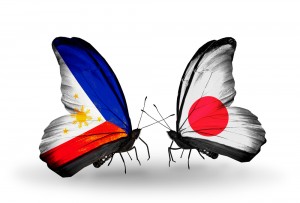Breaking
PHL economic growth attracts investors to come here, Japanese businesses in ASEAN say
MANILA — The Philippine economic growth is attracting investments in the country, said Federation of Japanese Chamber of Commerce and Industry in ASEAN (FJCCIA) at the sidelines of the 7th dialogue between Secretary General of ASEAN Le Loung Minh and FJCCIA in Makati City on Tuesday.
FJCCIA chairman Tetsuo Tomino told reporters that the ability of the Philippines to expand its economy within the last four years created a good image among Japanese businesses.
“In last couple of years, the image of Philippines in Japan was worse. But now it becomes better and it’s becoming better and better. The reason why, is Philippines continues its great economic growth. Japanese like that figures,” Tomino said.
“In order to make Philippines image better, the most important thing is to continue this economic growth so that everybody comes here,” he noted.
Further, FJCCIA has submitted requests to the ASEAN Secretary General during the dialogue which addresses key issues to further strengthen ASEAN and Japanese trade and investment ties.
“The submitted key priority issues focus at the final stage of realization of AEC (ASEAN Economic Community) in 2015,” Tomino mentioned. “FJCCIA strongly believes that these requests also enhance business competitiveness in ASEAN as a whole.”
Tomino, who is also the president of Japanese chamber in the Philippines, cited some requests it submitted to the ASEAN Secretary General, which he said will benefit more to businesses and people in the Philippines.
These include (a) uniform standards and certification for industrial products; (b) liberalizing movement of natural persons or facilitation of intra-regional movement of high-level human resources; and (c) taxation related matters or simplifying procedures concerning taxes.
Aside from these, other requests from other Japanese chambers in ASEAN were also submitted during the dialogue which also include issues on infrastructure and small and medium enterprises development, protection of intellectual property rights, and competition policy.
Tomino said it is also important to identify medium- and long-term issues including regional energy security, acceleration of regional integration, region-wide social security system, and spreading of ASEAN’s high level liberalization to ASEAN+1 free trade agreements.
“The content and result of dialogues will be reported in ASEAN-Japan Economic Ministers Meeting in August this year,” he mentioned.
“We are fully committed to work together to resolve regional issues and offer largest possible contribution to the economic integration process towards 2015 and formulating the vision beyond the 2015,” he added.
Tomino stressed that ASEAN is now the most important market and manufacturing base for Japanese companies.
According to him, investments of Japanese firms in ASEAN in 2013 alone reached to US$ 23 billion which is almost three times larger than Japan’s investments to China.
























